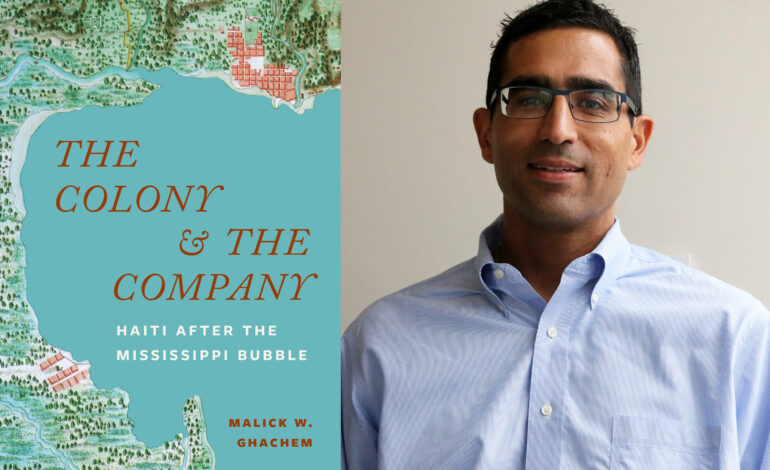Unpacking Haiti’s Economic Roots: The Legacy of the Mississippi Bubble

Haiti’s ongoing struggles can be traced back to significant historical events in the early 18th century, particularly the economic turmoil surrounding the “Mississippi Bubble.” This narrative connects the French monarchy, financial speculator John Law, and a stock market crash that reshaped Haiti’s economic landscape. After the death of Louis XIV in 1715, France faced substantial debt from prolonged military conflicts. Law, a Scotsman, was appointed to reform the economic system, aiming to alleviate this burden by retiring French debt through an ambitious plan that included expanding overseas commerce.
Law’s economic experiments led to the creation of the Mississippi Company, a monopoly that aimed to capitalize on the wealth of the French colonies, including Haiti, then known as Saint Domingue. However, rampant speculation resulted in the catastrophic Mississippi Bubble and subsequent crash between 1719 and 1720. The fallout from this economic disaster not only caused Law to lose his fortune but also left a lasting impact on Haiti’s economic structure.
The period marked the beginning of Haiti’s “sugar revolution,” which established the country’s economy around labor-intensive sugar plantations. These plantations relied heavily on enslaved workers and were characterized by extreme violence against political adversaries. This extractive economic model benefitted a small elite and laid the groundwork for Haiti’s enduring socio-economic challenges.
Historical Perspectives on Haiti’s Economic Development
The implications of 18th-century events on Haiti’s present-day issues are complex. Malick Ghachem, a historian at the Massachusetts Institute of Technology (MIT), emphasizes that understanding this era is crucial to comprehending Haiti’s economic trajectory. In his recent publication, The Colony and the Company: Haiti after the Mississippi Bubble, Ghachem argues that the financial dynamics established during the 1720s initiated a cycle of debt and dependency that Haiti has struggled to escape.
Ghachem’s research indicates that Haiti’s integration into global economic systems was not merely a backdrop but a formative event that shaped its future. Until the late 1600s, Haiti was largely ungoverned and sparsely populated. The establishment of a plantation economy served France’s fiscal needs, leading to an intensified focus on agricultural production driven by slave labor. As the Mississippi Company sought to maximize profits, Haiti became a significant player in the global sugar market, further entrenching its economic dependencies.
“The Mississippi Bubble of 1719-20 was a global event,” Ghachem states. “One of the theaters where it played out most dramatically was Haiti.” This perspective highlights how the economic crises of Europe resonated throughout its colonies, establishing a complex relationship that would influence Haiti’s development for centuries.
The Unfolding Complexity of Haiti’s Society
Haiti’s plantation society was multifaceted, comprising a variety of individuals, including Jesuit missionaries, European settlers, and maroons—freed or escaped slaves living independently. The societal structure was fraught with violence, civic instability, and limited economic alternatives. Ghachem notes that the so-called success of Haiti as a French economic force is inseparable from the conditions that have hindered its survival as an independent nation post-revolution.
The Haitian Revolution from 1789 to 1804 marked a pivotal moment in the country’s history, yet Ghachem argues that it did not fundamentally alter the underlying economic challenges. While some view the revolution as the catalyst for Haiti’s contemporary issues, he posits that these problems trace back to Haiti’s historical ties with France. The revolution exacerbated existing vulnerabilities, particularly in how France responded to Haiti’s newfound independence.
Scholars have lauded Ghachem’s work for its depth and insight. Pernille Røge from the University of Pittsburgh described his book as “a multilayered and deeply compelling history rooted in a careful analysis of both familiar and unfamiliar primary sources.”
Ghachem aims to broaden the conversation surrounding Haiti’s past and present, urging readers to consider the deep-rooted economic structures that continue to shape the nation. “I’m trying to keep up with the day job of a historian,” he reflects. “Which includes finding stories that aren’t well-known, or are well-known and have aspects that are underappreciated, and telling them in a new light.”
As Haiti grapples with modern challenges, including widespread violence and political instability, understanding its historical context is essential for addressing its ongoing crises. The lessons from the 18th century provide critical insights into the intricate web of economic dependencies that have defined Haiti’s trajectory and continue to influence its future.






